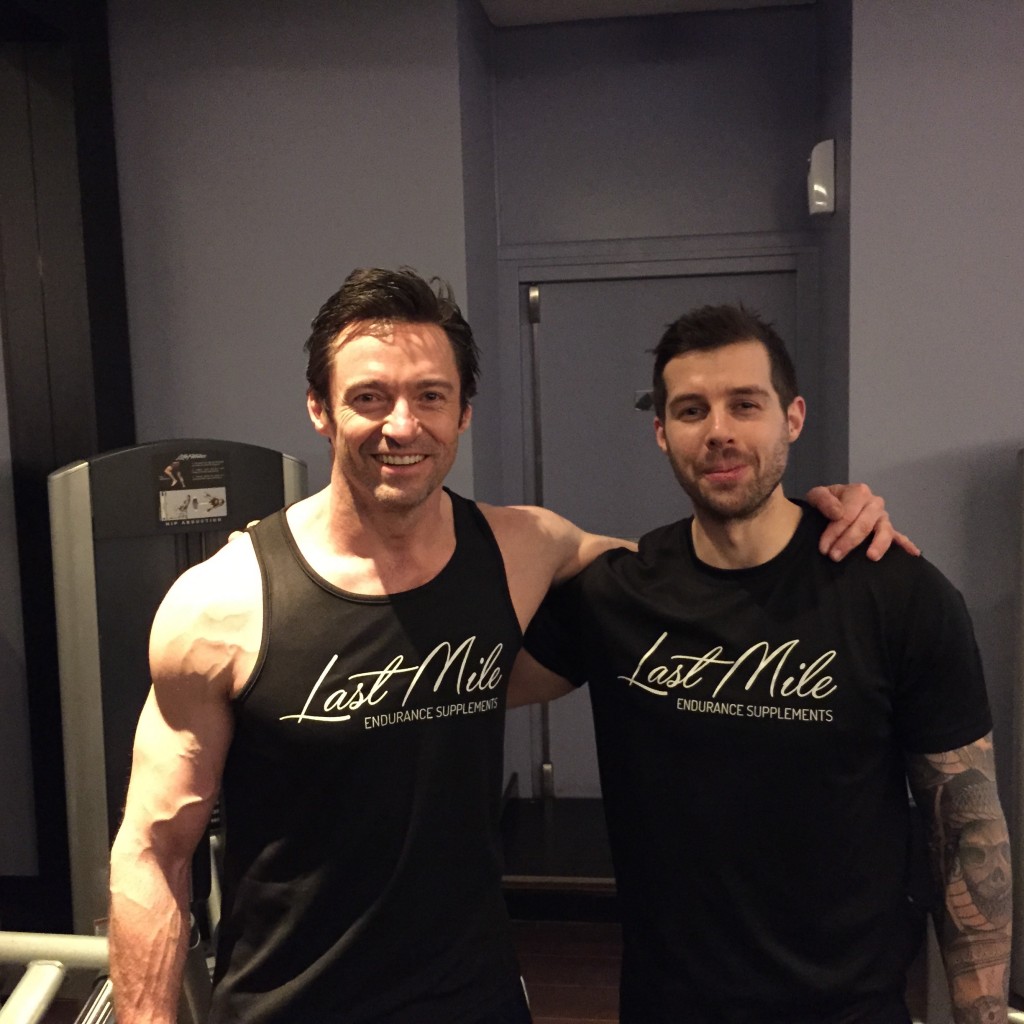
A look at the benefits of weight training to boost running performance with David Kingsbury.
David is a personal trainer and competitive cyclist and founder of Last Mile Endurance Supplements. He works primarily in the film world as one of the industry leaders in providing fitness solutions for actors and actresses. He is best known for his work with Hugh Jackman for the X-Men and Wolverine Films.
Many people still believe weight training is for strength sports only and that lifting weights will make you slow and ineffective running longer distances. As with many sports, to take things to the next level, you should investigate every possible avenue for improvement, and the results for resistance training and strength work should have you thinking of how you can get the most out of your training. Let’s have a look at four reasons to incorporate resistance training into your training plan.
Help prevent injury
One of the biggest misconceptions I face with my job is that weight training will cause injury, when the truth is that when training performed correctly, weight can actually help prevent injury. Not only will weight training help to iron out imbalances, heavy strength training triggers protein synthesis in the connective tissue and can increase bone strength which is very important for runners. If muscles are not prepared to handle the load, stress gets absorbed by the joints, bones and connective tissue. Over time, overuse injuries including stress fractures, runner’s knee and shin splints may occur. Heavy resistance training will help reduce the chance of these being a problem.
Improve your body’s muscular efficiency
Muscular efficiency can be improved with weight training as it will help prevent muscle breakdown when covering longer distances in training. Resistance training also boosts mitochondrial density; this will have a massive impact on endurance performance. Mitochondria are incredibly important; they are the power plants of cells. The primary role of mitochondria is to convert the nutrients we eat into energy. They are specifically involved in the production of adenosine triphosphate (ATP). ATP is then used by our cells to enable a whole host of body functions from breathing to exercising. Mitochondria are vital to energy metabolism; they play a central role in fatty acid oxidation (burning fat for fuel) which is hugely important for endurance athletes. If you also add in BCAA supplementation you will see further benefits as Branched-chain amino acid (BCAA) supplementation has been shown to increase mitochondrial biogenesis in skeletal muscle.
Improve body composition
Improving body composition is beneficial in two ways. Firstly it ensures that your body is optimally poised for performance with quality lean mass and limited fat mass that will reduce your strength/power to weight ratio. It also will have you looking good, which is never a bad thing! With steady state aerobic training, a decrease in relative fat mass will cause a decrease in total weight with little change in lean body mass. In general, endurance athletes have suppressed resting concentrations of testosterone and elevated cortisol, which isn’t an environment to promote optimum muscle repair due to being in a catabolic state. Heavy weight training will help to produce an anabolic hormone response and therefore create a better environment for your body to recover from exercise. I also suggest consuming a high protein diet with BCAA supplementation to maximise recovery and body composition improvements.
Improve core strength and muscle imbalances
Strengthening your core using compound weight movements will help to improve your running form and efficiency towards the end of intense efforts. A strong core allows you to put the power down when you need to and also will help keep the power high when fatigue sets in. Using compound movements like barbell back squats, barbell lunges and deadlifts will build core strength and really help your body to work efficiently while running. Using unilateral movements such as Bulgarian split squats can also even out muscle imbalances and help improve strength with increased central nervous system efficiency.
A final note
When planning your weight training you need to start off with a base phase of lighter weights to ensure you build up the weights gradually. You also need to consider the scheduling of your weight training as it will likely leave you fatigued with some muscle soreness. The off season can be a great time to focus on improving strength and can be used very effectively in conjunction with base miles for improved strength and aerobic efficiency.






